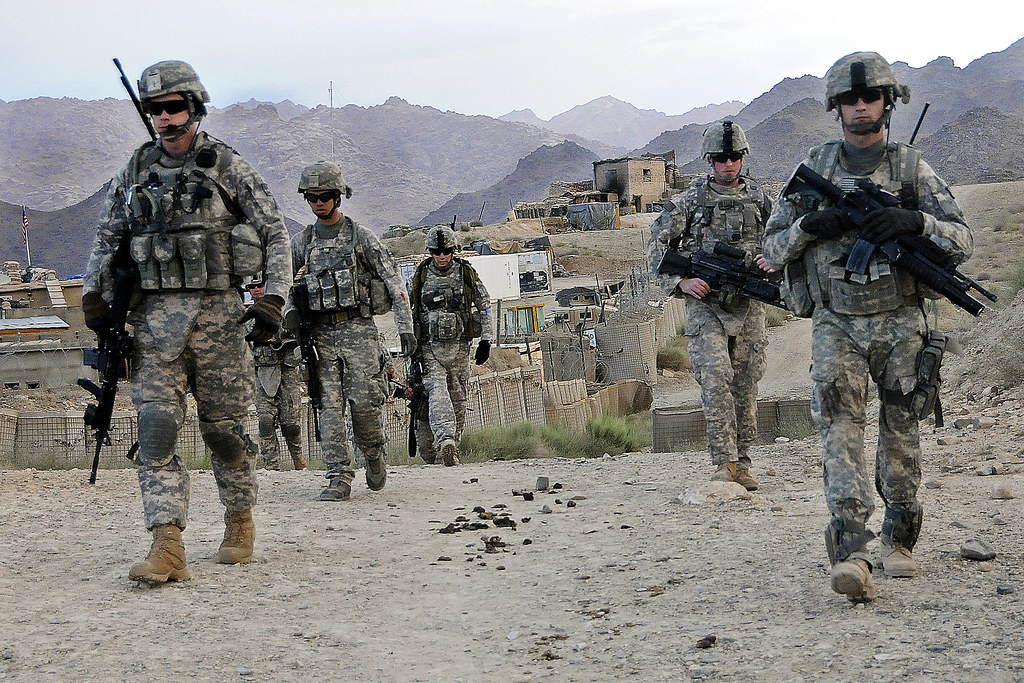With Kabul fallen, Canada, the United States and their allies are now attempting to salvage what dignity they can from an utter debacle. Above all, there is the need to save Afghan refugees. And there will be many. The Taliban are making reassuring noises, and analysts will debate about just how much they have changed, but the risk of reprisals and repression is plainly great enough to warrant immediate, large-scale effort.
Canada certainly put such an effort off for long enough. So did its allies. When the Biden Administration announced its unilateral withdrawal, it plainly had no plan in place for the logistics of evacuating its own allies, let alone refugees more generally – and Canada was even slower. Now the Americans control Hamid Karzai International Airport alone, the Taliban are not making access easy.
This is not for lack of warning. The idea has been around for years. Canada created a special program for Afghan interpreters in 2009, however inadequate it was. While the Taliban’s victory blindsided many in the West, it was clear that the insurgents were on the rise: this was the case well before the Biden Administration confirmed American withdrawal.
This inaction is not an accident; it is symptomatic of the Western approach to the conflict. The transfer of risk away from the West is a systematic element of contemporary war. This is an essential concept for understanding policy towards Afghan refugees. Essentially, the Trump and Biden Administrations put risk transfer front and center. The priority for the Biden Administration was to get its people out, with “its people” defined in such a way as to include U.S. military personnel and American civilians (and, indeed, dogs), but to relegate its local allies and Afghan civilians to an afterthought. Canada left seven years ago, and then largely ignored the legacy of risk its mission had created in Afghanistan itself.
Risk-transfer war comes with distancing and depersonalization, to keep one’s own soldiers as far out of harm’s way as possible while still making war. Drones are one manifestation. The shift to capacity-building missions is another. In a different way, so is the hiring of contractors: the distance comes, here, from the arm’s-length relationship. A government owes its uniformed soldiers a pension and benefits (such as they are), but deems itself exempt from such obligations to contractors. Often, Canada and the United States don’t seem to know who worked for their war efforts. It is up to the contractor to prove it, through lonely appeals to their companies’ HR departments.
Depersonalization, though, could only go so far, as Kristian Kristensen argues in the Danish case. It is no accident that across the West, the issue of Afghan refugees begins with interpreters. During active combat, they forged deep ties with Canadian, American and other NATO soldiers, who depended on them to stay alive and do their missions. It is with great pain that NATO soldiers contemplate the fate of their comrades.
These battlefield bonds gave interpreters a resonant moral claim and energetic and influential allies in the West, and even that wasn’t enough for timely action. But NATO countries hold much broader ethical obligations, including to thousands of Afghans who were never part of a band of comrades with Western troops but who worked for and with external forces and are coming under threat because of it. The Taliban has attacked contractors who built roads for external forces, and local government officials who supported the American and NATO missions but were never formal employees. Though any former employee is eligible for the Canadian and American visa program, the impetus to resettle interpreters is strongest, and the American program explicitly puts them at the top of the list (see p. 5 here). Whether that will carry on in Kabul’s chaos remains to be seen.
More broadly, we have an obligation, as we always do, to assist any refugee in need of aid, whether they worked for us or not. Efforts to clamp down on Afghan migration (such as those of French President Emmanuel Macron) are beneath contempt. They are, again, a transfer of risk: the political risks to Western politicians translate into physical risks to Afghans. Macron’s statement was flagrant, but the same logic applies to the lower-profile bureaucratic efforts to limit visa programs that Canada, the United States and others have applied to Afghanistan (excluding those who worked fewer than twelve months for a mission, requiring applicants to be in Afghanistan, including minor children but not adult children of contractors, or—even now—requiring passports). More generally it applies to the chronically cumbersome refugee-claims process.
In short, the evacuation efforts are critical if we are to recognize where the risk of our wars lies and to reduce those risks to vulnerable individuals as much as possible. The risks that came from associating with Canada deserved our government’s efforts years ago. It now deserves Ottawa’s full attention. It is well indeed that Canada will accept 20,000 refugees from Afghanistan and will go beyond those who worked for this country. Canadians can help in resettlement. But it is hard to ignore the inattention and delay. Many will now perish who cannot make it to the airport, and even that option may not long remain open.
The Government of Canada—Department of National Defence, Global Affairs Canada, and Immigration & Citizenship above all—have to act well beyond Afghanistan as well: our military operations abroad rely on locals. But while the overall focus on capacity-building rather than on combat makes it easier to ignore the risks, those risks do not disappear. It does not stretch credulity to imagine Islamic State, separatists in Ukraine, or al-Qaeda targeting those who worked with and for external forces like Canada’s. We must not transfer those risks away as we please. We must rapidly assess the risks for our other operations in progress and recently concluded. We must keep far better track of who works for us. We must plan for what they may suffer, and what they will need from us, in virtue of having worked for this country’s missions. Further, as a country that never conducts military missions in conflict zones on its own, the protection of local allies and the terms of withdrawal must be major part of how Canada negotiates the terms of its participation with its allies and coalition partners.
These kinds of practical measures, meant to lessen the risk of military interventions in conflict zones to local allies, are necessary because of Canada’s ongoing operations. But it would compound the disgrace if the legacy of Afghanistan was simply to find better ways to avoid embarrassment at the end of wars that we should never have fought in the first place. The broader lesson must be to approach the use of force with the wariness it deserves—not just because of the risks to us, but because of the risk to everyone concerned. It must be to finally stop treating lives in conflict-affected places as though they were cheaper than ours.





Comments are closed.